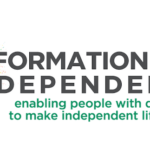“Why technology favors tyranny”: only part of the story?

Here is an excellent article that highlights the risks from concentration of (economic) power. Whether the concentration is through the trusts of more than a century ago, such as the railways and oil, the concentration of half a century ago, such as telecommunications, or now the concentration of control over data, the same dangers persist. The main danger is that the economic power is used to overwhelm democracy and hurt or hold back wider society.
The solution proposed in the article is nothing new – it is a similar approach to that taken with past monopolies: break them up.
But to whom should the dispersed ownership be given? What power will the new owners have? Will the new owners know what to do with their new power?
The real issue is not the ownership of data. It may or may not solve the problem, but I doubt that it alone will achieve much. No, it is control of the data and who exercises that control.
Taken to the extreme, for example, we could ‘return the power to the people’, i.e., we each own the data about ourselves. But the evidence is now in: for data, this simply doesn’t work in the vast bulk of circumstances. It is too hard to understand what is happening to data, it takes too long to find out, and if each of us goes to the bother, what bargaining power do each of us have anyway?
We have solved this challenge in almost all other domains of the modern life. Planes and their pilots are made safe for us by standards/frameworks/rules/laws that are developed by agencies we trust. They are also tested against and enforced for us by other agencies we trust. The same with safety in buildings, the safety in the clothing we wear. The same even when it comes to the doctor we visit.
Sometimes, these kinds of frameworks are put into place after a major disaster or significant groundswell of public opinion. Take the motor car, for example. After about half a century of market competition, there were more cars on the roads, and safety was improving. Then we discovered that be that as it may, safety was woefully behind.
It took activists such as Ralph Nader and his book “Unsafe at Any Speed” to galvanise action. The resulting change is, again, standards setting then testing against standards, all driven by legislation. The outcome is a much, much safer body of motor vehicles on the road than would have ever been delivered by an unfettered market.
When it comes to data, especially personal information, a framework must be found that works primarily for the wider community, not just for those who have the information. The start of the thinking is in some of the wiser work on data ethics, such as the work being led by the European Data Protection Supervisor. This may not be the endgame, but it may be a good beginning.
But even an ‘ethics’ framework may not be sufficient, if it is captured and implemented the wrong way. Once we know what the framework ought to be, we need strong enforcement, to protect the public from exploitation by the likes of the ‘FAG’ businesses – Facebook, Amazon and Google – and by government which at its worst includes the Social Credit system in China.
Then the other element is needed: the groundswell of public opinion that the political processes cannot avoid. In many countries of the world, this happened for one small aspect of this power asymmetry: the phone marketing industry.
Only because there was so much public resentment at the extent of phone marketing 15-20 years ago were Do Not Call laws passed in countries like Australia, Canada, the US, etc. Further back, the same groundswell led to the defeat of the Australia Card in 1987. It was clearly ‘a bridge too far’ for the Australian public.
Will we see such a groundswell again soon in regard to other aspects of the more egregious use of personal information?
Malcolm Crompton is the Founder and Lead Privacy Advisor of IIS Partners (IIS), a company that works with public and private sector organisations to build trust with customers through protecting their personal information.














